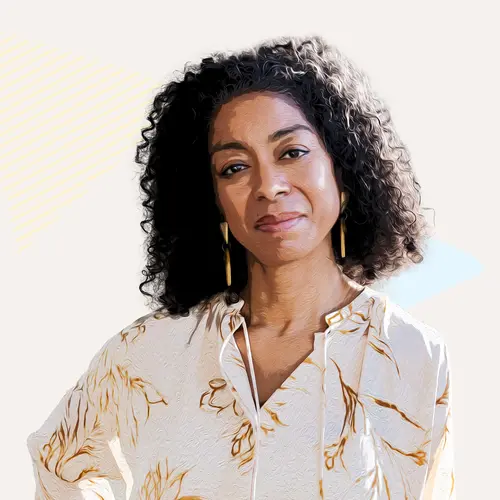When Maureen Peltier, 76, got chemotherapy for her advanced-stage ovarian cancer several years ago, she found that guided imagery helped her deal with the treatment’s unpleasant side effects. “Whenever I felt nauseous or exhausted, I would close my eyes and visualize the drugs as little smart bombs that traveled around my body to find and kill my cancer cells,” says Peltier, a retired attorney in Houston.
It’s a strategy she’s returned to, whenever she’s felt anxious or unsure that her cancer will come back. Sometimes she pictures an army of women soldiers roaming through her body, attacking stray cancer cells. Other times she imagines water swirling through her veins and flushing toxins out. Today, she credits these exercises with helping her better deal with her disease.
“Even if it hasn’t, it’s helped me maintain a positive attitude because it’s made me feel like I have some control over the process,” she says. “It’s given me confidence that I can handle anything, even the unknown.”
Research suggests that at least half of all women diagnosed with ovarian cancer turn to complementary therapies. These may be herbs, supplements, relaxation techniques like meditation or guided imagery, or strategies such as acupuncture or massage.
Cancer doctors once dismissed these complementary therapies as quack treatments. Today, most doctors recognize that they can play a valuable role in treatment, says Rachel Grisham, MD, a medical oncologist who specializes in ovarian cancer at Memorial Sloan Kettering Cancer Center in New York City. The key, she stresses, is for people to work closely with their health care team to make sure that any therapies they use don’t interfere with medical treatments like chemotherapy.
“They can be very beneficial to combat side effects of cancer such as fatigue, anxiety and pain,” says Larissa Meyer, MD, an associate professor of gynecologic oncology at the MD Anderson Cancer Center in Houston. “They can also help relieve stress, which we know can be a driver of cancer growth.”
Common Alternative Therapies
Acupuncture. With this technique, an acupuncturist inserts thin needles into certain pressure points in your body. It may help with chemotherapy side effects such as nausea, fatigue, and numbness in the hands and feet, says Meyer. There hasn’t been much research on this topic, but one small study found this to be true. “I’m a huge believer in it, even though we still don’t fully understand how it works,” she says.
Dietary supplements. It isn’t recommended that you take any sort of supplement during chemotherapy without checking with your doctor, as it may interfere with the treatment, stresses Meyer. Even after you’ve finished chemo, she recommends that you always talk to your oncologist to be sure a supplement is safe. If your cancer center has an integrative medicine clinic, talk to someone there as well. Some of the supplements you may hear about include:
- Quercetin. This substance is found naturally in fruits and vegetables such as apples, onions, red grapes, cherries, raspberries, and citrus fruits. It’s also in black and green teas. There is some data to show it may slow tumor growth.
- Scutellaria baicalensis Georgi. Lab studies have shown that this Chinese herb may limit the growth of cancer cells, including ovarian cancer ones.
- Wheat germ extract. This supplement was developed by a Hungarian chemist in the 1990s. It shouldn’t be confused with wheat germ oil. It may help certain chemotherapy drugs treat ovarian cancer better.
- Vitamin D. The sunshine vitamin has been touted to prevent certain cancers, including ovarian cancer. But a review of 17 studies published in 2020 found there’s no evidence that it lowers your chances of getting ovarian cancer or that it will give you better odds of survival.
- Turmeric. This spice contains curcumin, a powerful antioxidant. Laboratory studies show it may have anti-cancer properties, but other studies have shown that it can interfere with some chemotherapy drugs.
Yoga and tai chi. These relaxation-based movement therapies may help you better tolerate treatment. One study found that women who did just one 15-minute yoga session before a chemotherapy treatment reported less anxiety and felt more relaxed. Another study of women with ovarian or breast cancer found that 10 weekly yoga classes lowered levels of fatigue, depression, and anxiety in patients.
Relaxation exercises. Relaxation techniques such as deep breathing or guided imagery may help ease stress caused by your ovarian cancer. They may also help you manage treatment better, says Grisham. “I often counsel patients to use these sorts of exercise to help them relax as they wait for chemotherapy treatments, or for the results of an imaging test or scan,” she says. A few to try include:
- Belly breathing. Take a breath deep enough to feel your belly expand, then hold for a few seconds. Exhale slowly. Repeat several times.
- Mantra meditation. This form of meditation has you focus on a word or sound, also called a mantra, such as “peace” or “love.” Don’t worry if your mind wanders. Gently bring it back to the present moment. The goal is to just relax your mind, so it stays in the present rather than jump from worry to worry.
- Guided imagery. As you do your belly breathing, imagine a peaceful scene or setting that brings you joy, like your favorite beach.
If you’re interested in a complementary therapy, talk to your medical provider. Even something that seems totally safe could interfere with your cancer treatment. They can also tell you if the therapy has research to support it. Many hospitals and cancer centers also have an integrative medicine department. It will work with you to find safe and effective therapies. Don’t be afraid to bring this topic up, either. Your doctor will be happy to answer your questions and concerns so you can get the best possible care.

